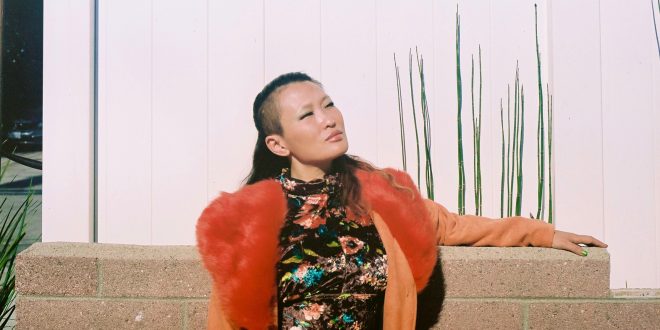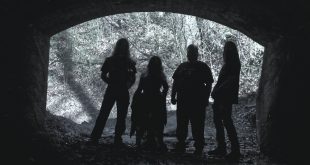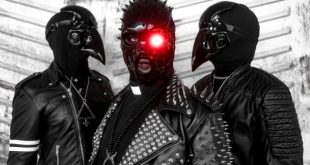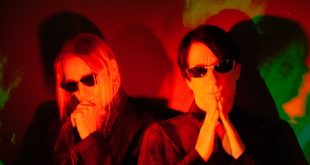Raised in New York City and based in Los Angeles since 2017, Grace Hong has accumulated a wealth of experience by way of various corporate and philanthropic endeavors. In particular, Hong currently serves as Senior Adviser at TPG Global, and as part of the Board of Directors at nonprofits Save the Music and Parasol.
At the start of the Covid-19 pandemic, Hong made the transition into producing music under the name Nolo Grace, and has five strong-performing singles under her belt, the latest being “Winter Blue”.
Alongside talking about “Winter Blue,” Hong discussed internalizing the hardships of her formative years leading up to her musical debut, finding balance between her professional and creative pursuits, and, within these areas, coming to terms with her identity as an artist.
As you’ve made the best of your time with several companies, did your pursuit of music take a back seat to all this, or did it find its way in?
I’d like to see it as one big transition. I think I’m at a point where I’ve been working on transforming my life in a certain direction, and there are still things from my past that are present. I’ve had this longstanding business career; I was an executive at a large conglomerate, I worked on Wall Street, and all that stuff. Then, I left that behind and started working on music, which is where my true passion is – as an artist and producer, and as someone wanting to do something good for the world. There’s my personal pursuit of things, and then there’s my inner calling to do something bigger.
For me, I think that’s what sparked Parasol. I went through this phase where I questioned so much of my life, why I made the decisions I had made, and where I ended up. I had to do a lot of inner work in order to get to a place where I could even pursue music in a genuine way and take myself seriously. As a part of doing that, so many great things have happened in my life, and I really feel like I want to give back in that regard. So, I started Parasol, which is meant to bridge the business, creative, personal, and spiritual development worlds together. I want my life to be about my own artistry – music, writing, painting, and all these different mediums – and I aim to incorporate those aspects into my consulting work – what I do at TPG Global – which I want to be more about rearchitecting human experiences.
I see. Essentially, you’re figuring out where all these pieces fit into the same equation.
Yup; you put that really well. It’s about realizing that these pieces of me that I’d previously considered separate are all coming together in a way, but music is one of the purest things that I work on; I’m really passionate about it.
Growing up, how did your musical environment inspire your musicianship?
I actually had pretty tough childhood growing up. My parents were Korean immigrants, and even though I had always aspired to play an instrument, like piano, for instance, they put a lot of pressure on me to succeed in all these different things that I was doing. My mother was schizophrenic, so there was violence at home, and a lot of trauma associated with music in general. Eventually, I left home, and became more involved in the classical side of music. Even though I listened to a lot of pop music, I was also performing classical music, like piano and vocal pieces. I went more in the direction of opera. It’s interesting, though, because for my dad, his dream was to be a musician too. I think some of that was passed on to me.
It still resonated with you, regardless of the tension.
Yeah, definitely. I also listened to Korean music from my parents, and I’ve wondered if the folksiness of the melodies were a part of that too.
Was it Korean pop music, or something traditional?
It was more traditional Korean music. My dad would watch these programs that were always on and played Korean ballads. Less pop, although there was some of that too.
At what point did you recognize that your talent had an effect on others?
I think it was pretty early on, particularly with the opera and classical side of things, even though I wasn’t that encouraged. I’ve always been shy about being in the spotlight, so my comfort zone was being part of choirs. Any time there was something that involved a solo, I actually had terrible stage fright, and I’d fainted multiple times.
Ah, man!
Yeah! I always felt like I had a chip on my shoulder, too (laughs). I was in this program called Tanglewood, where the Boston Symphony Orchestra worked over the summer. There were incredible people who had been training their entire lives, and I think there was some aspect of self-confidence within me that wasn’t always there, so that really held me back.
As you’ve taken time to work through your shyness, though, does it surprise you that you’ve been able to make music that you enjoy, and that you’re confident to put out?
Oh yeah, and it took a long time for me to get to that point. Normally, if you think about it, it seems easy, but there’s so much emotional and psychological baggage that goes along with that. There’s having the music, and then there’s putting it out, and I’d struggled a lot with that. It’s been a beautiful process, though, just going through the motions of releasing music and putting it out there, and it’s put me in such a better place with myself. There used to be things about myself that I wasn’t accepting of and had to face. Now that I’ve done that, I’m thinking, “Okay, I’ve already done the hard part of letting people know about my project; how can I make music that’s more ‘me’”, you know?
Right, and in terms of expressing yourself, you made your music debut in 2020 as the pandemic was happening. What inspired you to make that leap?
I think it was on my mind pretty much every day for a while. During the pandemic, I was busy and had a lot of things going on, but putting my music out there was super important to me, so I put consistent action towards that. Just putting one song out there can be a lot, but I had to do it, and I’d had a bunch of songs already, but not all of them were written with the intention of being released.
For my first song, I chose “Wake Up,” because it represented a message I wanted to get out there, which is, “Wake up; you don’t have to prove anything.” It was kind of like a song to myself, telling myself that I can do what I want to do, essentially.
Given how your very first release featured Sean Kingston, that must have been huge!
Yeah, definitely. I feel very fortunate!
How did that come about?
An engineer I’d worked with on one of my other songs, “Don’t Wanna Go Home,” wanted to give “Wake Up” a big feature, because he’s a well-connected producer with Sean Kingston, Migos, and a bunch of other hip-hop artists. Within two weeks, he made it happen; Sean Kingston was in the studio, and I was really fortunate that he liked the song and wanted to record a verse for it. It was amazing and really cool, especially since I hadn’t released anything at the time (laughs)!
It goes to show how important these connections are – people who not only stick with you, but believe in your product.
Definitely. I plan to do more collaborations this year. I’ve had people reach out to me on Instagram, and I’ve done a verse for someone else. Collaborating is a little outside my comfort zone, but I really want to open up to creating with more people.
Currently, you have your fifth single out, “Winter Blue,” and it’s a product of waking up first thing in the morning and making beats on your Ableton Push. Was this a habit you eased into quite quickly, just because it was something you could pick up and instantly be creative with?
Yeah! I’d actually gotten it right before the pandemic, but what really influenced me was watching Kenny Beats on YouTube. He’s a producer who has this whole creative philosophy about not overthinking things, so I started making songs every morning before I’d start my day, and that’s how the Ableton Push became such a large part of my workflow. I’d just make beats, and layer my vocals onto them as a pad, which is a very classic ‘me’ thing to do (laughs). You’ll hear that in “Winter Blue,” and pretty much everything else I’ve done.
Right around the time I heard your song, I was talking to one of my best friends, who was going through a lot of stuff at the time. She’d say to me, “That’s life, amigo. Cruel, yet beautiful in a way,” and that’s the lens I began to see “Winter Blue” through.
Yeah! That’s the kind of headspace I was in, too. I had just come back from Joshua Tree with my husband, and we’d had a difficult moment during that weekend trip. He’s a music producer, and at the time, he’d said some pretty hurtful things about my music. I almost wanted to stop making music after that (laughs)! But “Winter Blue” was the song I’d manage to come up with after that moment. We were deep in the pandemic, feeling really isolated, and I was doing a lot of self-development work, but also trying to remind myself of those things. It was a subconscious conversation with myself – trying to lift myself up, while still feeling my feelings.
Do you feel that managing your emotions through this time was a gradual process, or a complete overhaul?
It was a complete overhaul in a way. The pandemic on my end was difficult, not only because of what was already happening, but I was working a lot, and knew that I wanted to put my music out, but I hadn’t yet. I was also the chair of Open Secrets, which is a nonprofit that tracks the flow of money in American politics, and it was an election year. I was also leading the merger of one organization with another, and I was pretty overwhelmed.
So, I worked with a lot of coaches and did a lot of meditating, and many other different practices to kind of get myself to a better spot in my life. I eventually did, and now, I feel like I’m in one of the best places I’ve ever been. Like I’d mentioned before, a lot of it was based on working through my own thoughts and emotions, as well as my mindset. I’d say it’s a combination of mindset and concrete action. Generally, I’d had a tendency to spin things around in my mind instead of just doing things, like I’m sure we all have. There’s procrastination, resistance, and all sorts of stuff. But consciously, it was knowing that I have to be able to rewire certain things.
For me, when you’re in such a state, three factors come into play: you deny it, you dismiss it, and you run away from it. But as long as you take those steps to better yourself, it’s worth it, even if it does require a massive effort.
Yeah! I think part of it, too, is embracing the flawed parts of yourself, and having compassion for them, rather than dismissing them. That darkness tends to stay, so when you’re able to give those darker aspects of yourself some love, I definitely feel like that’s what helps in creating a shift.
Of course! Similarly, what do you feel you’ve assessed about your growth as a producer and creator?
That’s a good question! I think, in a creative sense, my growth is now coming from a different place; it’s pure, and less insecure, so that’s a big thing. More recently, I’ve been thinking about what I want to say more consciously. I’ve been working on a release that’s going to be either an album or EP, and there are a lot of songs that haven’t made the cut. But from a creative perspective, it’s about being really open, crazy, silly, and all that stuff. Being creative is about going back to your inner-child, and what I’ve noticed is that I’ve been so serious for much of my life, so being able to tap back into that is really helping me.
I’ve noticed that, too, and I’ve applied that to falling in love. When you’re younger, you’re kind of oblivious to it, and with unfortunate circumstances that may come along, whether it’s physical or emotional distance, or a breakup, you tend to bounce back a lot faster. When you’re older, though, you tend to open up more, you’re more conscious of your actions, and even though it becomes harder to recover from those circumstances, you’re grateful that you chose to love.
That’s beautiful. Yeah, that is the key. Situations may harden you and make you more self-protective, and I’ve had those tendencies, but when you can be resilient in that way, it’s such a beautiful outcome. I haven’t always been that way, but that’s how I aspire to be, too.
You mentioned wanting to put out an album release eventually. Do you notice these thematic angles shaping it into what it is?
Yeah, definitely! These themes are everywhere (laughs); I can’t imagine them not being there. I feel like I’ve gone through so much change in my life, and coming from my perspective, I’m able to share all that I’ve done – the things I either chose to do or put off doing, my love life, traumas, and all that stuff. It’s all there. I really want to put that into a positive message, and I noticed that when I first started doing music a few years ago, that was before I’d realized these things; they were love songs, but they were bitter, you know? I feel like now, this perspective is from my higher self.
Factoring in this transformation, what have you learned about yourself, not only as a musician, but as a person?
I think one thing I’ve come to realize is how much I am an artist. Sometimes, to this day, I struggle with the feeling of, “Woah, maybe I’m not really an artist,” but in coming to terms with that, it’s not just my music by itself; it’s the visuals, the worlds, and what I want to share around my music. My artistry can also be expressed in my way of life. I feel that that’s one area where I’m like, “Okay, that’s what I really wanted, and it happened; I’m here now.” So that feels really good.
What I’ve learned is that I still have a lot of work to do (laughs). It’s such a process. It doesn’t end, and it’s a matter of uncovering more and more layers of my authentic self. You’re aware of some part of it, and maybe you’re 90 percent of the way there, but you’re still in this process of revealing it, and you’re getting closer and closer to who you are, and what you want to say, create in the world, and be with. As I’ve taken the steps to do the things I want to do, I’ve noticed that my world has opened up. I love the people who are in my community now, and I think I now recognize what it feels like to live in alignment.
The last thing that I’ll say is that I’ve realized just how much it’s important to care about other people who share what they’re passionate about. I want to be someone who’s there for other people. Your pain becomes your purpose; you see how difficult things are for others, and you aim to change that for them. Learning this, especially over the last couple of years, has solidified me, too.
Nice! Lastly, anything you’d like to say to your fans?
Other than thank you for listening to me (laughs), thank you for your support, and I really hope you connect with the music and the message.
Nolo Grace Socials:
Official Website|Facebook|Twitter|Instagram|YouTube|SoundCloud|Spotify
 Music Existence Because of Music, We Exist
Music Existence Because of Music, We Exist




